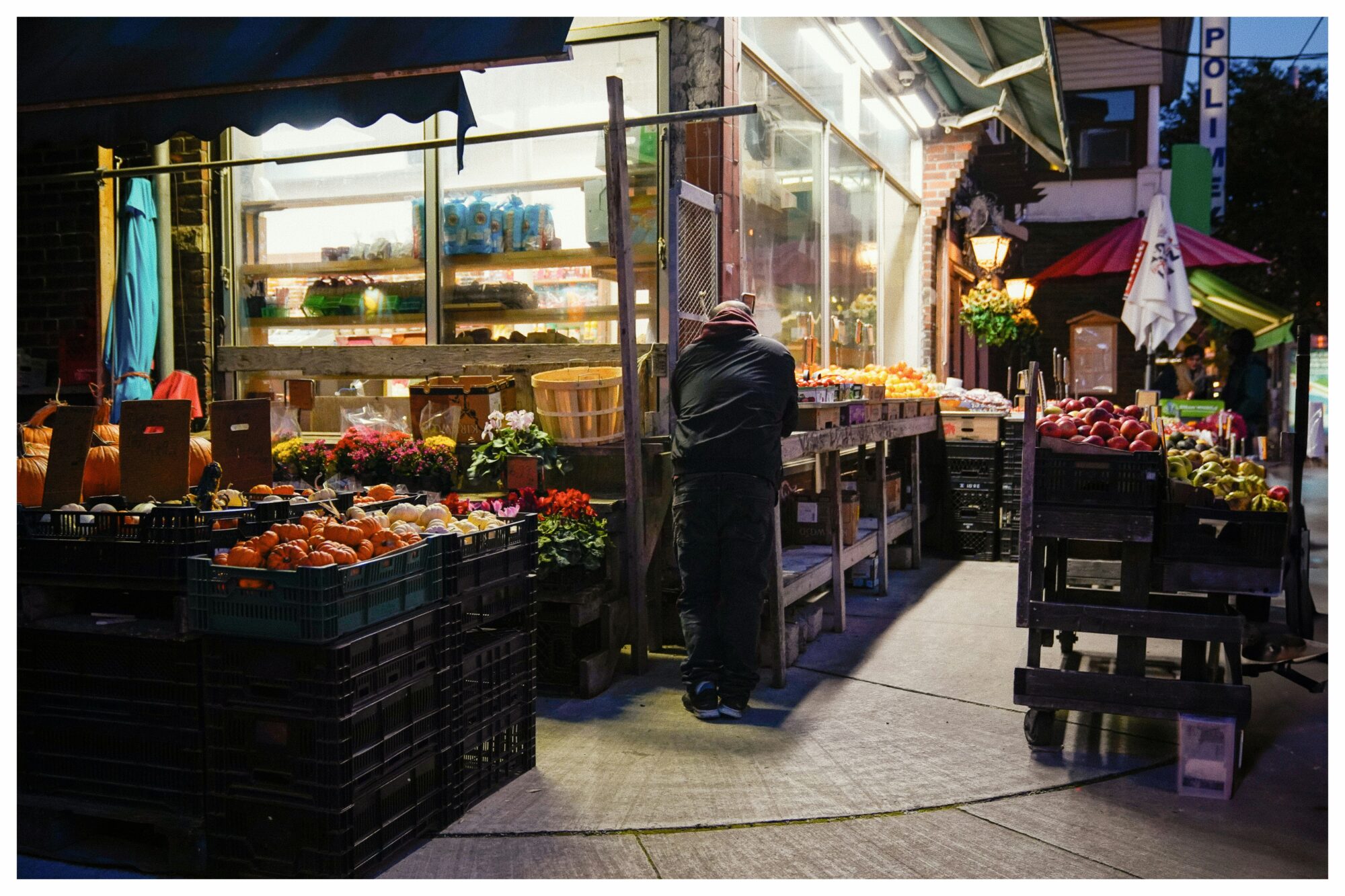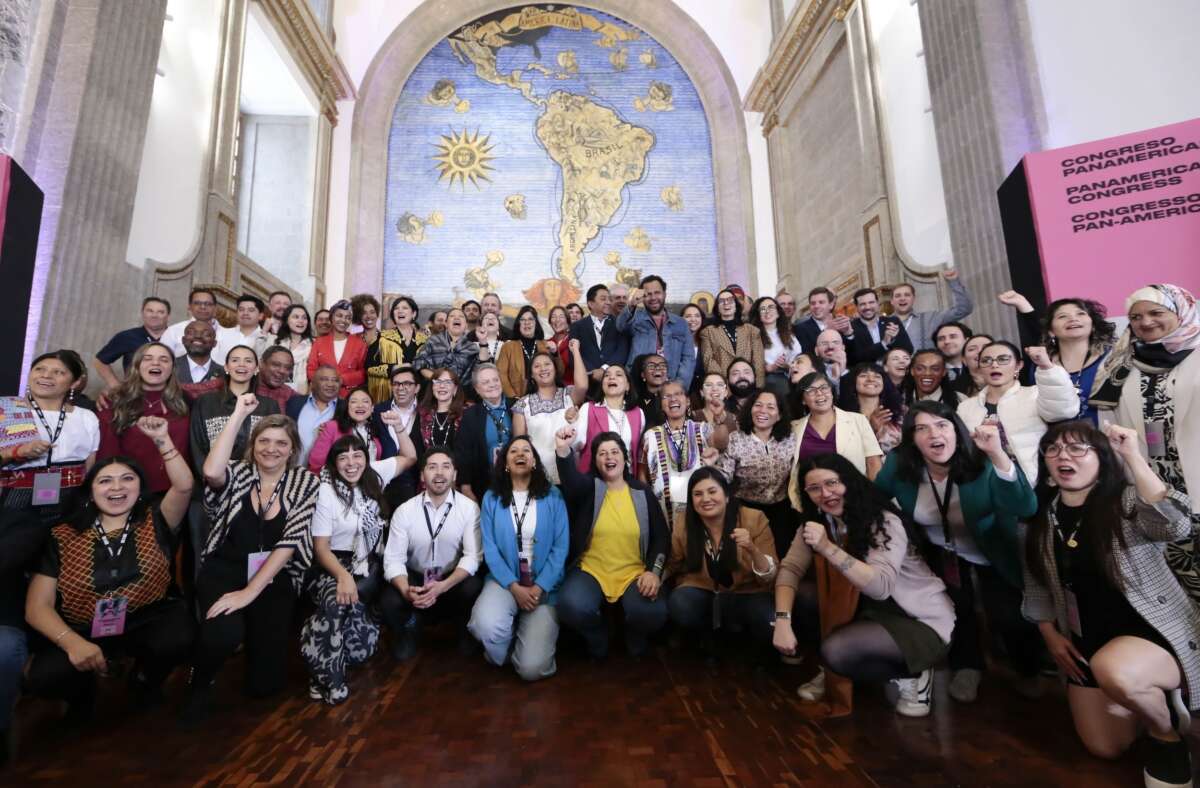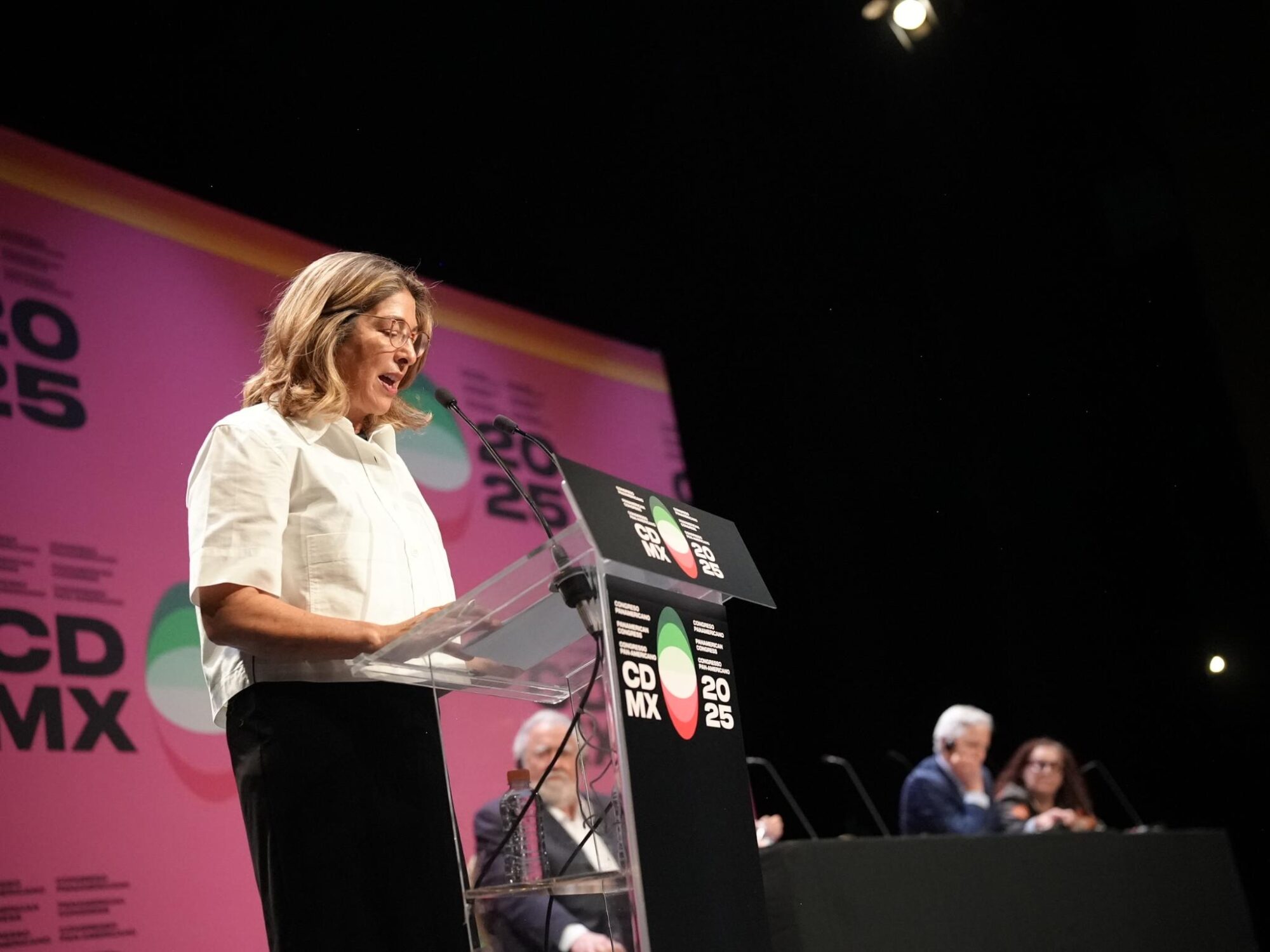Food insecurity in Canada represents a pervasive systemic issue that has a devastating population impact, while those most affected by the failings of the food system have little say in its governance. By enabling food democracy through democratic participation, Canadians and citizens everywhere can reclaim control of the food system and enable its transformation. Citizen participation is a critical factor for the development of just and effective policies, and for the health of a democracy. However, public participation in Canada is in crisis as those most affected by the issues are either excluded from public processes or experience significant barriers to participation. While the minimalist model of democratic governance equates democracy with casting votes during an election, other models see active citizen participation in civil society and public discourses as necessary for democratic stability. 1
More equitable democratic participation strengthens the legitimacy and accountability of a democracy and should be encouraged. Johnson (2015) emphasizes the importance of upholding the principle of affected interests, whereby those who are “governed, bound, or seriously affected by a policy have a claim to be involved – directly or indirectly – in the processes of its development.” 2 Building on the all-affected interests principle, Moscrop and Warren (2016) call for the inclusion of equity considerations, arguing that the degree to which a community is affected by an issue should be reflected in their distribution of representation in democratic decision making bodies. 3 Levac and Wiebe (2020) assert that including diverse people, knowledge systems, and forms of evidence in the process of policy creation process may lead to more just policy outcomes. 4 Among these experts, there is broad support for approaching democratic processes with social justice-oriented aims to deliver on just and equitable policy outcomes.
Public participation in Canada is not equitable; equity-denied groups experience significant barriers to participating in public processes, whereby socio-economic inequities mirror themselves in the inequities of democratic participation. Material inequalities, rooted in structural inequities and related to income, housing, education, food security, flexibility of time, and access to childcare, inhibit equal and meaningful participation. As a result, the voices of equity-denied groups, including lower-income individuals, newcomers, people experiencing homelessness, people with disabilities, ethnic minorities, seniors, youth, caregivers with children, as well as Indigenous peoples are often missing in the public policy processes. Indigenous peoples face unique barriers to participation in Canadian democracy, which is inherently incompatible with the rights of the Indigenous people to self-determination and self-government. The colonial state structure imposed on Indigenous sovereign nations goes against the Indigenous right to self-determination and self-government, and goes against the very principles of Canadian democracy. 5 Without addressing inequities in citizen participation, formal public engagement processes not only reflect the oppressive colonial systems and systemic inequities but also serve to replicate the same kind of exclusion and marginalization in the policy decisions.
Political theorists universally call for the need to shift power dynamics from top-down, government-mandated community engagement, to bottom-up, community-led citizen participation by creating low-barrier, local opportunities for democratic participation. This would enable citizens from equity-denied groups to exercise their power and observe the more immediate impacts of their actions, which can serve as the foundation for democratic participation more broadly. 6 Participedia, a worldwide network and crowdsourcing platform for researchers, educators, practitioners, policymakers, activists interested in public participation and democratic innovations, demonstrates a global surge in democratic innovation. Some democratic innovations highlighted by Participedia include participatory budgeting, citizen assemblies, neighbourhood councils, deep canvassing, collaborative governance, and Community-Based Participatory Action Research (CBPAR); a collaborative approach to research that involves stakeholders through the research process for strategic actions that leads to community transformation and social change.
One such innovation that looks to fight insecurity in Canada is a 2024 CBPAR study entitled, Neighbourhood Food Democracy: Participatory Food Asset Mapping in Vancouver’s Westside which introduces a conceptual framework of neighbourhood food democracy. This research served as a vehicle for supporting democratic participation of equity-denied groups in addressing food insecurity in Vancouver, British Columbia. While focused on food insecurity, this case study serves as an illustrative example of the possibilities for strengthening social democracy and returning power to the people.
Food Insecurity as a Window to Equity and Democracy
Food insecurity is defined by Health Canada as the inability to acquire or consume adequate, quantity or quality of food in socially acceptable ways, or uncertainty about being able to do so. Below the surface challenge of hunger and malnutrition, food insecurity is a systemic issue, reinforced by structural inequities and a democratic deficit in food systems governance.
At its root, food insecurity in Canada is caused by inadequate income, and will not be solved by food alone. In many countries of the Global North, food insecurity is directly related to financial constraints and low household incomes. 7 Food insecurity is known to be the strongest indicator of economic deprivation, because food is the first expense to be cut out or compromised when people struggle financially. It reflects systemic barriers and disproportionately affects equity-deserving groups, including Indigenous peoples, racialized communities, single-parent families, newcomers, low-income individuals, people with disabilities, and seniors. 8 Equity-deserving groups, impacted by food insecurity, also experience significant barriers to democratic participation, and are virtually excluded from the decisions on the food system governance. As a result, food insecurity, as a dual-axis issue, offers a compelling entry point for examining structural inequities and democratic exclusion, and serves as a promising point for intervention.
Neighbourhood Food Democracy: Supporting Participation of Equity-Denied Groups in Addressing Food Insecurity Through Community-Based Participatory Action Research
The concept of food democracy, first prominently coined in 1999, suggests that citizen participation is critical in regaining democratic control of the food system and enabling its transformation by addressing the issues that affect them. 9 In addition to promoting the quality and legitimacy of food policymaking, food democracy initiatives are said to carry considerable mobilizing potential, making them a promising site for broader democratic innovation. 10 Not surprisingly, food democracy faces some of the same challenges as democratic participation more broadly. To overcome these barriers, supporters of food democracy call for a variety of locally based forms of deliberation and decision-making. The neighbourhood unit represents an ideal setting for a localized exercise in democracy: neighbourhoods are the spaces that feel the impacts of food insecurity, and offer an appropriate scale to mobilize equity-denied groups and support their participation in a democratic process. By engaging in their neighbourhood, citizens discover commonalities and make connections between their private concerns and collective interest, implicated in local policy. Local opportunities allow them to exercise their power and observe the more immediate impacts of their actions.
From 2023-2024, the Neighbourhood Food Democracy study was run to create local, participatory opportunities for equity-denied groups in a democratic deliberation on a complex issue that affects their lives. The study introduced a conceptual framework of Neighbourhood Food Democracy by creating place-based opportunities for knowledge co-creation, community empowerment and setting an agenda for social change. The study adopted a Community-Based Participatory Action Research (CBPAR) Methodology as a proven framework for generating ideas and facilitating community organizing to address complex issues. Its action-orientation and participation focus supported the goals of knowledge co-creation, community empowerment and setting an agenda for social change. CBPAR is an exercise in deep democracy, where ordinary people come together to take action to improve their life circumstances. This study engaged 15 community members with lived and living experience of food insecurity in the CBPAR methods of participatory food asset mapping and focused group discussion to identify valuable food assets in Vancouver’s Westside. It considered values, barriers, and systemic factors (knowledge co-creation) that contribute to the current state of affairs and suggested a set of recommendations to address them, creating an agenda for social change. The study validated the promise of the CBPAR methods as effective tools for engagement of marginalized groups and offered important lessons for supporting democratic participation of equity-denied populations more broadly.
Lessons on Supporting Participation of Equity-Denied Groups in Addressing the Issue That Affects Them
This research study, while focused on food security in a hyperlocal context, offers important lessons for supporting participation of equity-denied groups in addressing the issue that directly impacts them.
Neighbourhood as a unit of democracy
Local, place-based opportunities for participation allow people to bridge the gap of democratic participation and connect to the issues at hand. Guided by the CBPAR methodology, the research participants were investigating the issue of importance in the context of their own neighbourhood.
The neighbourhood context plays a critical role in enabling the democratic participation of equity-denied groups because it addresses issues that directly impact them. Rooted in everyday relationships and shared spaces, neighbourhoods offer a uniquely accessible and relevant scale for civic engagement. Neighbourhood-based engagement reduces barriers to participation by meeting people where they are, fostering a sense of ownership, and allowing for more immediate, visible impacts of collective action. These local settings create the conditions for trust, connection, and community empowerment. Thus, neighbourhood-based opportunities may positively support participation of equity-denied groups in civic processes and build the foundation for democratic engagement more broadly.
Relevance of the topic
To inspire democratic participation, it is critical to center the conversation on the issues that are important to the community. First, it helps inspire commitment to the process, because these issues reflect the everyday realities of the people discussing them. A bottom-up, demand-drive approach may also lead to more effective and just outcomes, since those affected by an issue are in the best position to come up with the solutions to address it. To identify the issues that equity-deserving groups care most about, it may be helpful to engage them early in the process, avoid predetermined agendas and allow ample time for the communities to define the issues of importance.
Reducing barriers
The research study was intentionally designed to reduce barriers to participation. For example, the sessions were held at a convenient central location during after-work hours. Participants were provided with meals at each session, as well as offered honoraria for their time and contributions. Participants with children were invited to bring their kids for supervised child care. The research participants were also offered other accommodations on a case-by-case basis, including a modified sign-up process and oral consent. These efforts to reduce barriers to participation exemplify acts of care and resistance to systemic exclusion, creating the conditions for more just and representative democratic processes.
Community empowerment
Community empowerment is often discussed as a critical prerequisite to the democratic process – democracy and empowerment are thus linked by the concept of political power. Community empowerment pursues emancipatory goals by developing informal counter-power (‘power to’) that liberates individuals from the domination (‘power over’) of formal structures. Andrea Reimer, a former City of Vancouver Councillor and a current Adjunct Professor at UBC’s School of Public Policy and Global Affairs, describes the types of informal power, based on the seminal work of French and Raven’s (1959) as applicable to the public policy sphere, which include referent and expert power, and power of the powerless. 11
Referent power: People power
According to French and Raven’s classification, referent power is the power that comes from identification with a person or group. 12 In community organizing and participatory democracy, referent power often refers to the power of collective identity, relationships, and social connection—in other words, “people power”.
Through the very act of coming together for the purpose of engagement, the research participants strengthened their referent power. As a discussion throughline, participants highlighted the importance of people realizing their individual power and coming together to build their collective power. During the discussion, participants emphasized the importance of growing the “people” movement: in the face of injustice and corporate dominance, participants find hope in coming together, as change will only happen in groups. Participants acknowledged the importance of different demographics, and different generations working together–merging past experiences and expertise of the older generation with the hope, determination, and innovative ideas of the younger.
Frustrated with injustice, in the face of overwhelming structural forces, the research participants saw hope in coming together to demand change and suggested building an organized movement by strengthening people power and finding allies. The non-profit sector was identified as a natural ally: it is representative of the community impacted by the issue, and often holds trusting relationships with the community members, and is seen as being in service of the people. As a result, the non-profit sector may play an important role in lending support to the people’s movement, both as a convener and a catalyzer.
Expert power: Power of knowledge
Expert power stems from the knowledge and skills people possess, including valuable lived experience and community knowledge. By bringing together diverse skills and knowledge over the course of the group engagement sessions, participants already felt that they strengthened their expert power. When it comes to growing a people’s movement, the participants highlighted the importance of education and capacity-building. In their view, pure passion and ideas are not enough to build a successful movement–developing skills and capacity in community organizing, collaboration and collective action is critical. It is critical that community members, especially representatives of equity-denied groups, are supported in building knowledge and developing capacity in these key areas–and once again, the non-profit sector may be best suited for this role.
Power of the powerless: Power of truth
Power of the powerless refers to sharing the truth and speaking truth to (formal, coercive) power. In the very act of coming together to share their lived experience and speaking their truth, the research participants tapped into the power of the powerless. Participants recognized the importance of sharing their truth: the lived experience of ordinary people impacted by the issues of poverty and food insecurity and speaking the truth to power.
Participants acknowledged the challenges of building a movement and bringing people together for a common goal due to the lack of awareness of the issue, particularly if they do not share similar lived experience. To inspire care, human stories will be much more powerful than facts and figures. Whether it is empathy, compassion and hope, or anger and outrage – these strong emotions are what inspire people to care and motivate them to act. There exists an opportunity to cultivate brave spaces for engagement to invite people’s stories and truth-telling.
Neighbourhood Democracy: Final Thoughts
How do we, as a society, address the most pressing and complex issues of our time? How do we stand against inequity and injustice, when the status quo is only serving a privileged few, while the rest are left to bear the devastating consequences? Do ordinary people have any say in influencing their life circumstances? Can those most impacted make a difference in the face of overwhelming power?
These questions hold true for many of the complex intersectional issues we, as a society are grappling with in these current times of increased uncertainty. We know that the path forward towards building a more just and equitable society lies in intentional efforts to restore democracy by involving those most impacted by the issues in the decision-making process. The Neighbourhood Food Democracy research study introduced a conceptual framework of neighbourhood food democracy as a tool to advancing participation of equity-denied groups in a democratic process of addressing the complex issue that directly affects them. While focused on food insecurity – the issue of both equity and civic participation, the CBPAR study provided some valuable lessons for supporting equitable democratic participation that can be applied more broadly to strengthen Canadian democracy, starting in neighbourhoods.
Notes
- Merkel, W. (2014). “Crisis of democracy”: Analytical concept or empty signifier. Paper presented to ECPR 8th General Conference Glasgow. ↩︎
- Johnson, G. F. (2015). Democratic illusion: Deliberative democracy in Canadian public policy. Toronto: University of Toronto Press. ↩︎
- Moscrop, D. R., & Warren, M. E. (2016). When is deliberation democratic? Journal of Deliberative Democracy, 12(2). ↩︎
- Levac, L. & Wiebe, S.M. (2020). Creating Spaces of Engagement. University of Toronto Press. ↩︎
- Green, J. (2017). The impossibility of citizenship liberation for Indigenous people. In J. Mann (Ed.), Citizenship in Transnational Perspective: Australia, Canada, and New Zealand (pp. 175-188). Palgrave McMillan. ↩︎
- Pitkin, H. F. (2004). Representation and democracy: Uneasy alliance. Scandinavian Political Studies, 27(3), 335-342. ↩︎
- Tarasuk, V., Fafard St-Germain, A.-A., & Mitchell, A. (2019). Geographic and socio-demographic predictors of household food insecurity in Canada, 2011-12. BMC Public Health, 19(1). ↩︎
- Community Food Centers Canada. (2020). Beyond hunger: The hidden impacts of food insecurity in Canada. ↩︎
- Michel, S., Wiek, A., Bloemertz, L., Bornemann, B., Granchamp, L., Villet, C., Gascón, L., Sipple, D., Blanke, N., Lindenmeier, J., & Gay-Para, M. (2022). Opportunities and challenges of food policy councils in pursuit of food system sustainability and food democracy–a comparative case study from the Upper-Rhine region. Frontiers in Sustainable Food Systems, 6. ↩︎
- Candel, J. (2022). Power to the people? Food democracy initiatives’ contributions to democratic goods. Agriculture and Human Values, 39(4), 1477–1489. ↩︎
- French, J. R. P., & Raven, B. (1959). “The bases of social power”. In Cartwright, D. (Ed.). Studies in Social Power. Ann Arbor: Research Center for Group Dynamics, Institute for Social Research, University of Michigan. pp. 150–167. ↩︎
- Ibid. ↩︎





